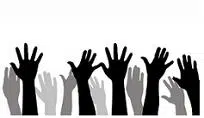Before entering fully into the meaning of the term direct democracy we have to proceed to know the etymological origin of the two words that give it shape:
-Democracy derives from Greek, exactly it is the result of the sum of two components of said language: the noun "demos", which can be translated as "people"; the noun "kratos", which is synonymous with "government"; and the suffix "-ia", which is used to indicate "quality."
-Direct, on the other hand, comes from Latin, in its case "directus", which means "in a straight line." We can state that it is the result of the union of the prefix "di-", which is equivalent to "multiple divergence", and the adjective "rectu", which means "right".
Democracy is known as a form of government in which citizens hold political power . The exercise of said power can be done through representatives or directly.
 Representative democracy , in this framework, is that which is exercised through representatives who arise from free elections that take place periodically. Direct democracy , on the other hand, is exercised by citizens without the assistance of any delegate.
Representative democracy , in this framework, is that which is exercised through representatives who arise from free elections that take place periodically. Direct democracy , on the other hand, is exercised by citizens without the assistance of any delegate.
Plebiscites , referendums and neighborhood assemblies are three of the mechanisms that allow the exercise of direct democracy. In this way, people elect public officials and approve or repeal the laws that regulate the organization of society.
In addition to everything indicated, we can highlight the fact that the direct democracy in question is, therefore, based on four fundamental keys or pillars, such as the following:
-The revocable delegation.
-The assembly, which acts as a system, means and tool of popular initiative.
-The trial by jury.
-The imperative mandate.
It is interesting to know that the first time that the direct democracy that concerns us was used and experienced was in the ancient democracy of Athens, back in 508 BC. From that moment, it had a validity and use of about two centuries, during which the Power was in the hands of an assembly that was made up of all male citizens.
In the modern world, the development of direct democracy is very difficult due to the size of the population and the complexity of societies . However, most representative democracies incorporate elements of direct democracy to allow for more active participation of the people.
Suppose that a presidential republic , which has a president as head of state and whose Constitution establishes the existence of three independent powers ( Judicial Branch , Legislative Branch and Executive Branch ), enables the call for plebiscites . In this context, the president decides to consult citizens about the possibility of eliminating mandatory military service. Thus he calls for a plebiscite open to the entire electoral roll , where he asks: "Do you agree with eliminating compulsory military service?" . There are two possible answers: "Yes" and "No" . As the result of the vote shows that 79% of the population is in favor of said elimination, the president decrees the end of mandatory military service in his nation. The population, therefore, was able to exercise direct democracy.
